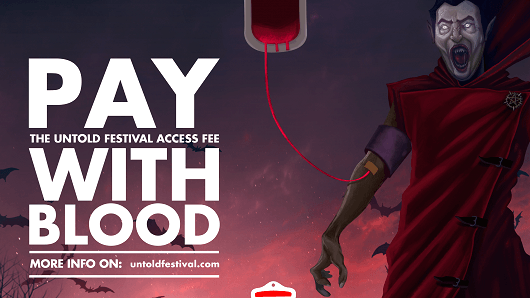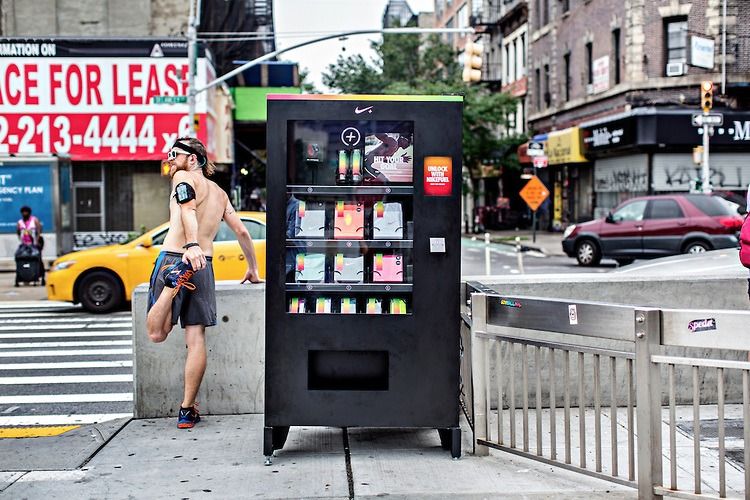Forget about the new cashless society that we seem to be racing towards. The latest innovation in money can be seen in bodily fluid currencies. Take human blood as an example. This vital liquid seems an unlikely candidate for a currency, but it has many similarities to how paper money works. We protect it, we can create more of it over time if we need to, we can exchange it, give or receive it, or if we are feeling philanthropic we can donate it. This new currency can not only save someones life, but it can now also get you access to the Untold Music Festival.
Romania has one of Europe's lowest blood donation rates, so the festival teamed up with Romania's National Institute for Blood Transfusions to try and encourage more people to give blood by offering them free or heavily discounted tickets. The festival's motivation was both clearly social but also commercial. The promotion, that played on Dracula’s region of origin, helped encourage young people to give blood for the first time and also helped raise the profile of the event to a wider audience as the story was quickly picked up by the media.

Romanians aren't the only ones dabbling in bodily currencies. In 2014 Nike launched a campaign that was based around sweat as a currency. They placed a vending machine full of Nike sportswear including socks, shirts and rare designer collaboration pieces on the streets on New York but with one simple catch. You couldn’t pay with cash, debit or credit card; instead the machine only accepted the currency of sweat.
The vending machine only took payment in the form of Nike Fuelband points, which were earned with Nike’s Fuelband fitness monitor. The vending machine only accepted points from the last 24 hours, meaning that to buy the products points from last week or last years 10 minute jog couldn't be used. The vending machine was a great promotional tool for Nike and helped further motivate its Nike Fuelband wearers to push themselves in their exercise that bit further, sweat that bit more and earn themselves some more Nike products.

The annual Global Citizen Festival in New York is also getting involved in encouraging people to actively participate. The only way to get a ticket to this event showcasing the biggest names in music is to do something to help fight poverty. The festival, run by the Global Poverty Project, focuses on several key issues including food and hunger, environment, health, girls and women, finance and education.
There is now a clear shift from the consumption of 'stuff' to the consumption of experiences and this is in part driven by millennial values and ideologies. This younger generation is seeking a more authentic, more ephemeral lifestyle and these new currencies are just one manifestation of this shift. Perhaps it's not quite the tear based currency that the title of this article implies, but it is clear that the organisers of the event want to enable festival goers to make a genuine emotional connection to a cause they believe in and to let them play an active role in creating a better world.
The idea of making products or events only purchasable by performing an action or a service has been around for a long time, usually classified somewhere between an informal economy and a barter economy. Now global companies and festivals are allowing a new audience to engage with their brands, often by encouraging people to do good, whether that is donating blood, keeping yourself healthy or campaigning for human rights. We just need to remember that not only big events or brand giants that can start their own currency based on action and reward. Anyone can.
Sources: Huge, Untold, Global Poverty Project. Images: Huge, Untold
Read the whole Alternative Currencies, Alternative Realities series.

Share your thoughts and join the technology debate!
Be the first to comment